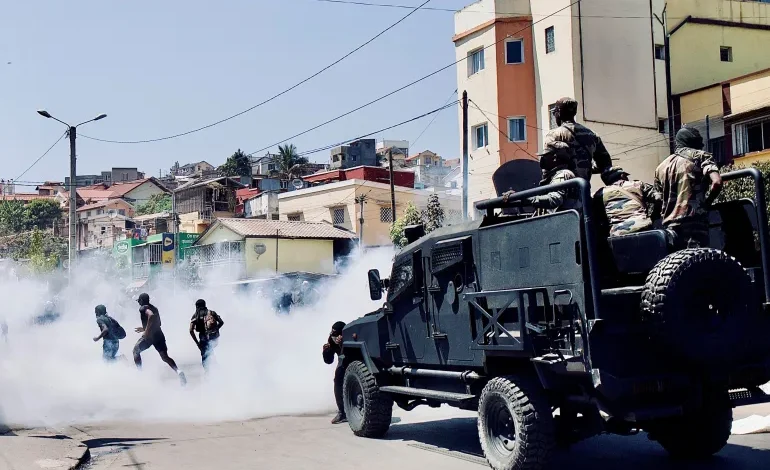Madagascar’s political crisis has exploded into the open. President Andry Rajoelina has dissolved his government after massive protests over power cuts and water shortages spiraled into deadly unrest. The UN says at least 22 people have been killed and more than 100 injured.
The demonstrations, which kicked off last week and carried into Monday, have been driven mostly by young people fed up with deteriorating living conditions in the capital, Antananarivo. Experts call it the biggest challenge to Rajoelina’s rule since his 2023 re-election — and the most serious unrest Madagascar has seen in years.
Crowds gathered at the city’s main university, waving placards and singing the national anthem before trying to march downtown, footage from local station 2424.MG showed. Police fired tear gas, rubber bullets, and enforced a dusk-to-dawn curfew to push them back. Looting spread through supermarkets, electronics shops, and banks, while politicians’ homes came under attack.
In a televised address, Rajoelina admitted his government’s failures:
“We acknowledge and apologise if members of the government have not carried out the tasks assigned to them,” he said on TVM. The president promised help for businesses hit by the chaos and added: “I understand the anger, the sadness, and the difficulties caused by power cuts and water supply problems. I heard the call, I felt the suffering, I understood the impact on daily life.”
But apologies may not be enough. Roughly 75% of Madagascar’s 30 million people were living below the poverty line in 2022, according to the World Bank, and the latest unrest is fueled by years of frustration.
The UN says casualties include both protesters and bystanders, as well as people killed during looting. Madagascar’s foreign ministry has pushed back, dismissing those numbers as “rumours or misinformation.”
Protest organisers say they’ve taken cues from movements in Kenya, Nepal, and Morocco. Demonstrators even waved a Nepalese protest flag, referencing this month’s rallies that forced Nepal’s prime minister to resign. Much of the organising in Madagascar has happened on Facebook, echoing Kenya’s online-led protests last year that successfully blocked a controversial tax plan.
For now, Rajoelina is betting dialogue will calm the storm, but the streets of Antananarivo suggest young people aren’t backing down anytime soon.










The latest news in your social feeds
Subscribe to our social media platforms to stay tuned